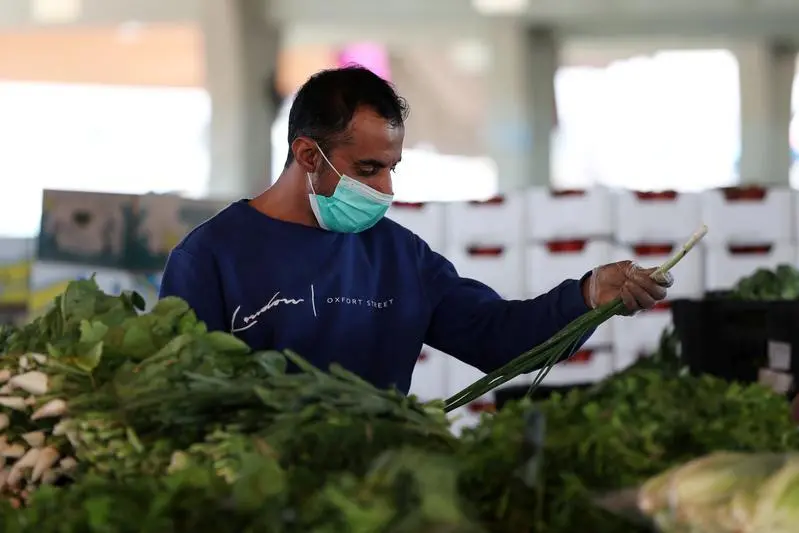PHOTO
DUBAI - Saudi Arabia's consumer price index rose 1.2% in February from a year earlier, boosted by food price hikes, while prices dropped for other items as the coronavirus outbreak started to impact consumer spending.
The overall index posted the third consecutive month of positive inflation in February and was the highest since December 2018, the General Authority for Statistics said on Wednesday. On a month-on-month basis, however, prices increased only 0.3%.
Hikes in prices for food, beverages and transport contributed most to the annual index increase. Food prices rose 3.6% in February.
But the kingdom registered a drop in prices for categories such as "restaurants and hotels" as well as "recreation and culture", which were instead among the main booster of the index in January, when the coronavirus outbreak had still not significantly impacted the Gulf region.
Saudi Arabia - which as of March 24 had registered a total of 767 coronavirus cases and one death - has taken some of the most drastic steps among Gulf Arab states by halting international passenger flights, cancelling the umrah pilgrimage to Islam's holiest sites and locking down its eastern Qatif region, where many cases are centered.
This month, it has ordered the closure of malls, restaurants, coffee shops and public parks and gardens, while exempting supermarkets, pharmacies and food delivery, in a bid to stem the spread of coronavirus.
"The impact of the coronavirus outbreak on prices started initially in February but it will be significantly more as social distancing increases," said Monica Malik, chief economist at Abu Dhabi Commercial Bank.
She added she expects a moderation in the overall index going forward because of the virus outbreak.
The cost of essential goods including staple food spiked last month, however, as Saudis stocked up food amid fears over the coronavirus pandemic.
A spokesman for the ministry of commerce said this week an increase in prices in some goods such as vegetables, fruits, sanitizers and masks was related to supply chain issues.
Prices receded in Saudi Arabia last year after rising in 2018 on the back of the introduction of a value added tax.
But higher government spending and an easing of austerity measures last year gave a boost to economic activity, which had recently started to translate into positive inflation.
The picture has changed dramatically this month, though, as Saudi Arabia - the world's biggest oil exporter - copes with the economic impact of the virus outbreak and with a historic plunge in oil prices following the collapse of a production cuts agreement with its OPEC partners.
Riyadh has announced over $30 billion in emergency stimulus measures to tackle the coronavirus pandemic and lower oil prices.
(Additional reporting by Marwa Rashad; Editing by Toby Chopra) ((Davide.Barbuscia@thomsonreuters.com; +971522604297; Reuters Messaging: davide.barbuscia.reuters.com@reuters.net))





















